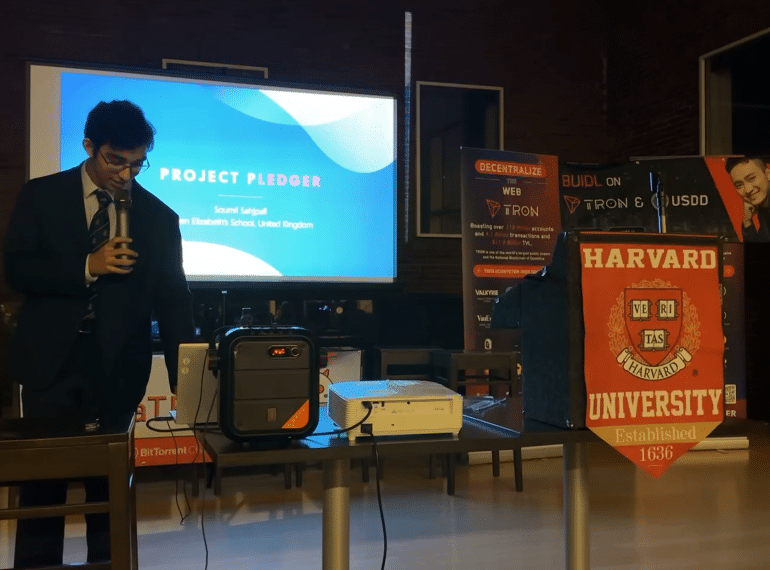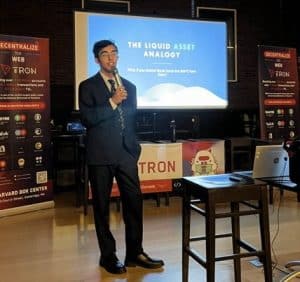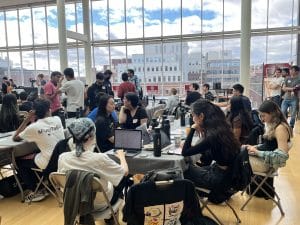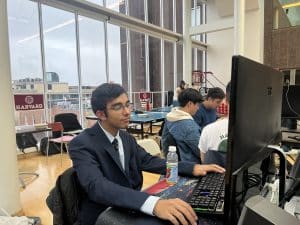Sixth-former’s solo coding efforts at Harvard and online win him international success

After winning plaudits at Harvard for his performance in a 24-hour ‘hackathon’, 16-year-old Soumil Sahjpall’s entry in an online follow-up event took third place, beating off competition from university teams worldwide.
 During his trip to the US, Soumil rubbed shoulders with Ivy League students as he developed blockchain software for cryptocurrency TRON in a coding marathon. His app earned him an ‘honourable mention’ from the judges, who placed him in joint-ninth place out of 55 teams.
During his trip to the US, Soumil rubbed shoulders with Ivy League students as he developed blockchain software for cryptocurrency TRON in a coding marathon. His app earned him an ‘honourable mention’ from the judges, who placed him in joint-ninth place out of 55 teams.
He then entered the TRON International Hackathon 3.0, an extension of the in-person event, which featured more than a thousand competitors from across the globe. Soumil said he was proud that his third place was the result of a vote by “a cryptocurrency community of thousands”.
Assistant Head (Pupil Destinations) James Kane said: “Our warm congratulations go to Soumil. He showed significant commitment in entering these competitions in the first place; he then demonstrated great skill and put in a huge amount of hard work to achieve international success against competitors several years older than him.”
 TRON, a leading cryptocurrency with a current market value of $5 billion, set a brief to develop a dAPP, or “decentralized app” – that is, software that runs on the blockchain, as opposed to on a server hosted by technology giants such as Amazon or Microsoft.
TRON, a leading cryptocurrency with a current market value of $5 billion, set a brief to develop a dAPP, or “decentralized app” – that is, software that runs on the blockchain, as opposed to on a server hosted by technology giants such as Amazon or Microsoft.
The in-person hackathon at Harvard in Cambridge, Massachusetts, featured a 24-hour period dedicated solely to developing the dAPP. In addition, Soumil attended workshops, and there was time allocated to presenting and pitching to judges.
Because of his age, even taking part represented a success: the organisers cleared him to compete, based on his performance in previous hackathons. Altogether, 55 projects were presented by some 200 young people, most of them six or seven years older than Soumil.
 “I found out about this hackathon with relatively short notice, so I competed solo,” he said. “I was relatively confident in my abilities and knew I’d still be having lots of fun, so that was all right. The average team size was around four members – with a maximum of five – so I was at a disadvantage.”
“I found out about this hackathon with relatively short notice, so I competed solo,” he said. “I was relatively confident in my abilities and knew I’d still be having lots of fun, so that was all right. The average team size was around four members – with a maximum of five – so I was at a disadvantage.”
Although delighted with the honourable mention – one of only ten available – for his presentation, and the $500 cash prize that went with it, he said “the real take-away from this is the experience and the people I met.” These included students from Harvard, Yale, MIT and Boston’s Northeastern University.
In the online event, the TRON International Hackathon 3.0, Soumil submitted his project, which he called ‘Project Pledger’, under the ‘academy’ track, designated for university-level students and his work was voted third.
